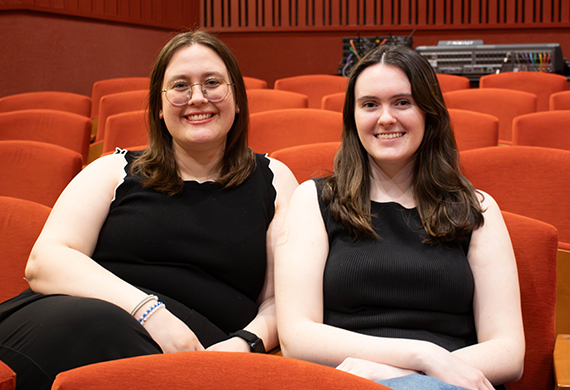Assistant Professor of Biology Megan Dennis Awarded $379K Grant from the National Institutes of Health
Funds will increase research opportunities for Marist undergraduates
September 24, 2019—Marist College Assistant Professor of Biology Megan Dennis has been awarded a $379K grant from the National Institutes of Health (NIH) to advance undergraduate scientific research.
This grant will increase opportunities for our undergraduates to be exposed to research, said Dr. Alicia Slater, Dean of the School of Science at Marist. Undergraduate research is a key component in STEM education and being awarded this highly competitive grant is a testament to Professor Dennis’s commitment to bringing such experiences to Marist students.
The grant will support student research assistants during the academic year and fund two student researchers each summer through 2022. However, the impact of the grant will extend even further. Tools developed during this research will be used in biology lab courses to allow those students to develop novel hypotheses and research paths. The grant includes funds to upgrade microscopy facilities within the Biology Department, bringing innovative techniques, such as the ability to see processes and capture events occurring inside living cells, into courses across the curriculum.
The capability to see the movements of proteins within living cells will be a new experience for Marist students, said Dennis. I expect it to inspire interest in research.

That’s exactly what the grant is intended to do. This funding comes from NIH’s Academic Research Enhancement Awards which, according to the NIH website, are meant to stimulate research at educational institutions that provide baccalaureate training for a significant number of the nation’s research scientists but that have not been major recipients of NIH support. The goal of the funding is to enhance the research environment by exposing students to research opportunities.
I have planned my entire career around thinking about projects that would be realistic for undergraduates to participate in, said Dennis, who joined Marist in 2016 and holds a BS in biology from Gonzaga University and a PhD in biomedical sciences from the University of New Mexico School of Medicine. I view the value of research as supplementing student experiences—whether those students wish to pursue a research career or not. Research is key in terms of building skills, said Dennis. For those considering medical school or healthcare related fields of study, the process of identifying and testing hypotheses builds critical thinking and skills necessary for diagnosing future patients.

The focus of Dennis’s research is AP-3, a protein that functions to sort proteins within cells. It figures prominently in Hermansky-Pudlak syndrome, a rare multisystem, genetic condition characterized by platelet dysfunction with prolonged bleeding, visual impairment, and abnormally light coloring of the skin, hair, and eyes (albinism). Next semester Dennis will begin preparing for her summer researchers. Their work will center on trying to figure out the role of AP-3 in different physiological processes.
Hermansky-Pudlak syndrome is a rare and understudied disease, Dennis explained. And this research presents an opportunity to work on this disease in a system that’s accessible to undergraduates.



